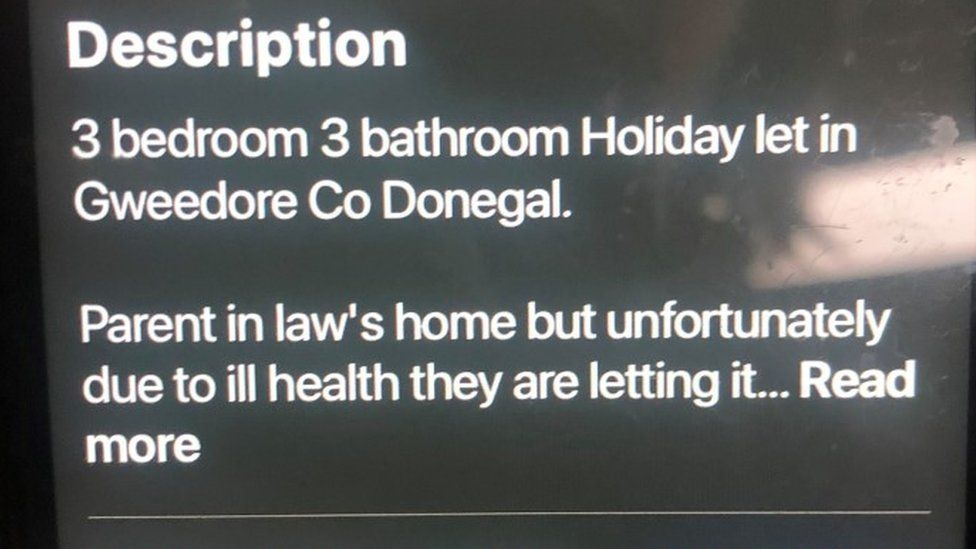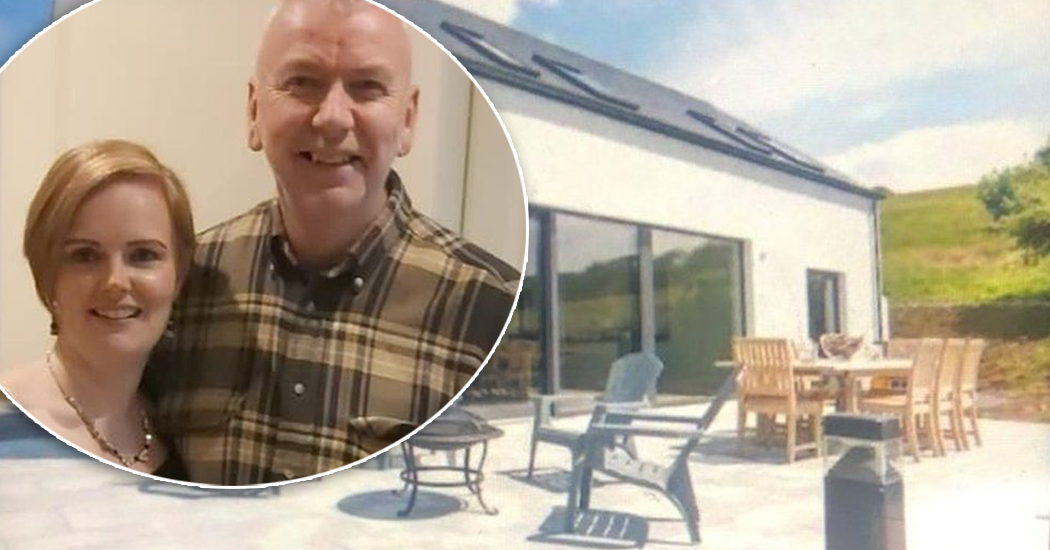Police in Northern Ireland are investigating more than 20 reports about a Donegal holiday home scam.
Scammers behind a fraudulent Facebook Marketplace advert convince people to hand over a deposit to secure a booking at a holiday home they do not own.
Despite reports of the scam coming to light in May, police say more people may have fallen victim to the fraudsters since then.
Supt Gerard Pollock encouraged anyone who comes across the scam to report it to the PSNI.
On Friday, Police in Derry City and Strabane were urging the public to be on their guard after they had received reports of people being duped into making down payments for holiday homes in Donegal and Portrush.
A woman duped by a fraudster selling holidays in Donegal has also warned others not to be conned.

Scammers behind the fraudulent Facebook Marketplace advert convince people to hand over a deposit to secure a booking at a holiday home they do not own.
Berni Campbell, from Strabane, paid a deposit before realising she had been duped.
PSNI Superintendent Gerard Pollock has now revealed: “Our enquiries would indicate that these adverts have been noted by up to 500 people.
“Those are the numbers we believe have looked at these adverts and maybe considered.”
A social media group has been set up for people who have been conned in the same scam and have lost deposits.
Supt Pollock said the deposits on the Donegal scam can range from £100 to £500.
While the ad had been removed from social media for a short time, victim Berni Campbell said it had now returned.
Mrs Campbell booked a break at the holiday home in March, advertised online as being in the village of Bunbeg. After a difficult year, she had wanted to take her “mum away for a week, for some family time”.
She contacted the seller online, he provided a number and they spoke on the phone.
“It just looked fabulous and he was really convincing,” she told BBC News NI.
“He really sold it to us, told us it was his parents’ holiday home, but they couldn’t use it this year. It was the first time they had rented the property out, he said. There was nothing that didn’t feel right.”

The seller provided bank details and Mrs Campbell paid the £200 deposit for a week’s stay in July using Paypal’s family and friends payment system.
That allows payments to be made without any commission – but it also means payments can not be paid back if something goes wrong.
Shortly after paying, she read an article in a local newspaper warning that the exact holiday home she had booked was a scam.
She had hoped it was not the accommodation she had booked – but the images used were identical, the method of the con the same.
The house does exist, but it is not in Bunbeg – it’s located in a town more than 60 miles away.
The owner of the actual property, the images of which are used in the scam, has also spoken out.
“I cannot believe whoever they are has not yet been taken to task by the authorities,” she told BBC News NI.
Supt Pollock said: “We know criminals are preparing for the summer with tailor-made holiday scams and, so, we would encourage everyone to do thorough research when booking holiday plans online.
“Most often holiday scams start with an advertisement online, or on a social media platform. There are key ways, however, to stop yourself from falling victim to these scams.”
He urged people to research the accommodation they intend to book and to pay using a credit card, rather than by bank transfer or PayPal to someone they do not know or have never met.
“If the deal looks too good to be true, it probably is,” he said.
A spokesman for An Garda Síochána said anyone who believes they have been a victim of fraud should report it to police. He said the safest way to send money is via an escrow account that ensures funds are not released until the buyer is certain the transaction is legitimate.








